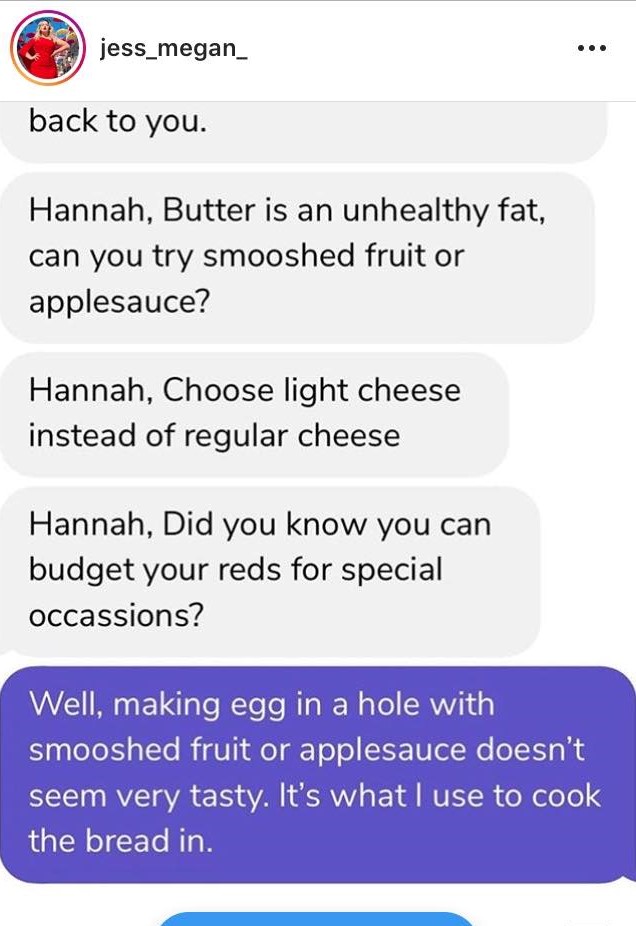If you have been following the news recently you will have noticed that, on August 13th, WeightWatchers launched a new health coaching app called Kurbo aimed at children aged 8-17. The coaching prices range from $12.25 to $17.25 per week depending on how long you subscribe to the service and offers 15 minute weekly video chats with a carefully selected coach. It has come under fire from nutritionists and parents alike and as someone who has suffered from severe eating disorders during my formative years, I cannot express how angry this made me.
WeightWatchers rebranded as WW, “Wellness that Works” last year, however this new app could not be further from a wellness venture. WW claims that Kurbo is based off of a program conducted at Stanford University however their program consists of 25 weekly sessions and it is mandatory to have a parent present. Kurbo does not mention such a requirement which seems counter-intuitive as parents need to be involved with the child’s diet and nutritional requirements. The app contains the expected food and exercise diary, combined with a traffic light system where unhealthier foods are red and healthier foods green. On the surface this may seem like a good idea as it is a very simplistic model for children to follow, however this can cause much deeper issues and lead to illnesses such as orthorexia as it reinforces the idea of “good” and “bad” foods which is often the starting point of eating disorders.

The suggestions, as highlighted in Jessica Megan’s instagram post, show the absurdity of the information being fed to young, impressionable filters with little restriction. The app also includes a “budgeting tool” that seems straight off the webpages of pro-anorexia sites.
The app is actively encouraging children to track and monitor every bite they take which is something I used to do when I was anorexic. This level of scrutiny on eating is not healthy for anyone, let alone children who are easily caught up in obsessive behaviour. The app furthers this addictive sense by using streaks and games to encourage children to spend time on Kurbo and focusing on their diet. HuffPost has released a study showing that children as young as 3 years old have body image issues, making WW’s recent venture all the more disturbing. The co-founder, Joanna Strober has claimed that the app alerts parents to any signs of disordered eating, but I would argue that this app in itself promotes this.
Kurbo says that it keeps children motivated through the use of goals, one mentioned on their website is “to make your parents happy”. Weight loss should only ever be done for your own personal health and happiness, and by using this as a goal, it is establishing social pressures as the primary reason to look a certain way, another key aspect of eating disorders. The use of before and after weight loss pictures of children involved with the program as so-called ‘motivation’ is nothing short of humiliating, and coupled with the statistics of how many pounds each child has lost makes me question how this was ever allowed to exist in the first place. Wellness may be the name, but weight loss is certainly still the game. Despite this, creators claim that the program has an “emphasis on BMI percentile and not pounds”, yet this comes with its own set of problems. BMI is a widely inaccurate measure of health as it does not account for many variables such as height and assumes that weight equals health.
There are nine coaches advertised on the site, only one of which has an actual qualification in Human Physiology and Nutritional Sciences. There are two ‘health coaches’, three ‘nutritionists’ and the other three have no notable qualifications in nutrition, and there is no evidence anywhere of these qualifications despite WW claiming they are “dedicated experts”. Speaking to HuffPost, a WW spokesperson said the coaches go through a minimum of six to eight hours of initial training and a further three and a half hours of continuing education. This is vague at best, and it is deeply concerning to think how much influence these people are having on impressionable young children considering their considerable lack of knowledge.
The worst part of all is the “Success Stories”, testimonials from children aged eight to seventeen singing the praises of Kubo. Reading through them I found many concerning statements that rang alarm bells to me as they were reminiscent of my thought patterns during my eating disorders. Donovan, aged 11, used to enjoy PB&J sandwiches however now doesn’t want them as “white bread is two reds”. Sarah, 13, says “you just log what you eat”, again a key activity of someone with an eating disorder. Sophie, 10, says “Kurbo made me feel beautiful” which seems innocent enough but goes on to say that her Dad mistook her for another child as she had changed so much. Drastic weight changes are yet another signifier of someone suffering from an eating disorder, and it appears that Kurbo is actively promoting this.
This is not the first time that WW has come under fire, last year they offered their traditional treatment plan to thirteen to seventeen year olds for free, probably in response to declining membership numbers which caused the Balance Eating Disorder Treatment Center to create the #wakeupweightwatchers.
A petition to remove the app was started by Rachel Egan, and as of the 17th August, it had 30 179 signatures.
